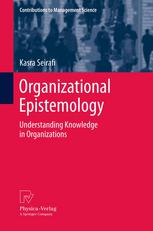

Most ebook files are in PDF format, so you can easily read them using various software such as Foxit Reader or directly on the Google Chrome browser.
Some ebook files are released by publishers in other formats such as .awz, .mobi, .epub, .fb2, etc. You may need to install specific software to read these formats on mobile/PC, such as Calibre.
Please read the tutorial at this link: https://ebookbell.com/faq
We offer FREE conversion to the popular formats you request; however, this may take some time. Therefore, right after payment, please email us, and we will try to provide the service as quickly as possible.
For some exceptional file formats or broken links (if any), please refrain from opening any disputes. Instead, email us first, and we will try to assist within a maximum of 6 hours.
EbookBell Team

4.7
36 reviewsThis book presents an in-depth perspective of knowledge as a fundamental process of any organization rather than just another resource to be managed. The author presents a process-oriented theory of creating and applying knowledge directed towards both researchers and practitioners. In this book the author develops normative knowledge management guidelines which draw from a unique view on knowledge, discussed in the field of philosophy since Plato but neglected by most knowledge management authors – by applying a philosophically grounded ‘social epistemology’ to organizations. The guidelines in this book call for an open and reflective space of knowledge creation, aligned with goals and structures of the organization. Numerous examples, field studies, and an application to the main case study on Seven-Eleven Japan complement both the descriptive view on knowledge as well as the normative guidelines presented in this book.